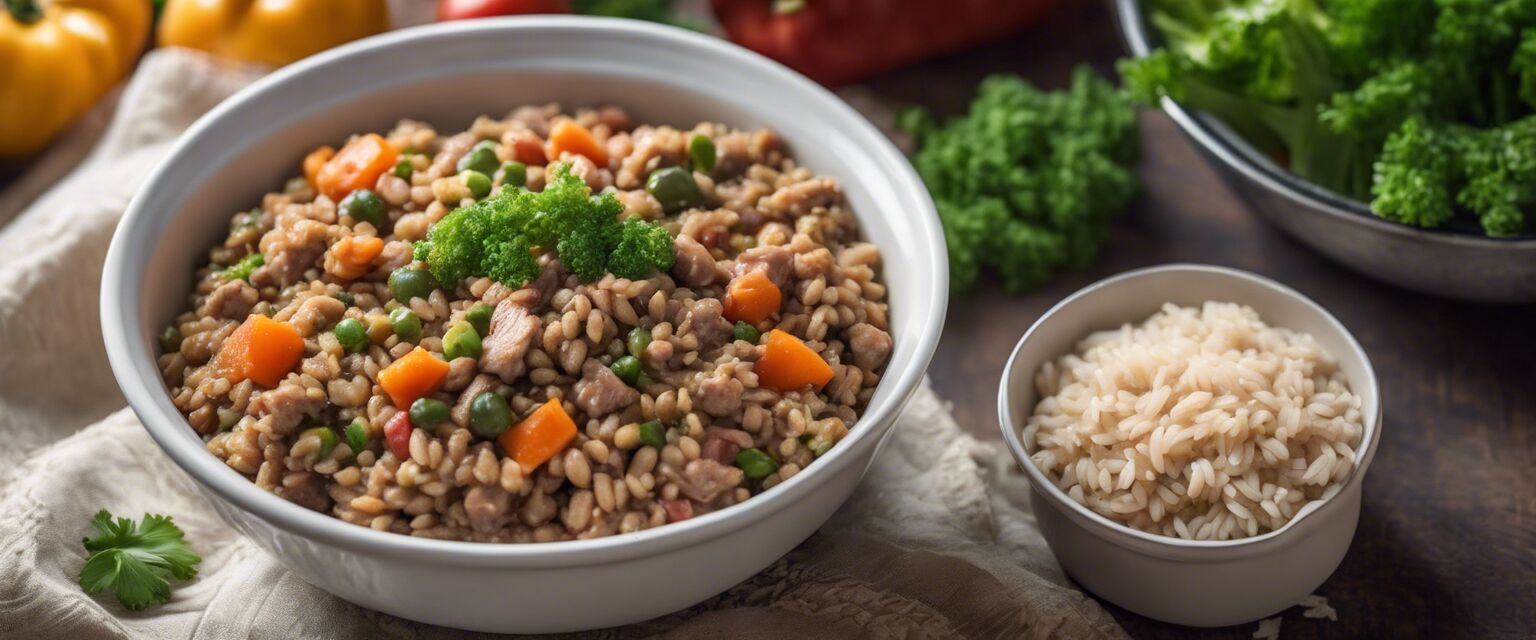
Nutrition for Senior Dogs
Key Takeaways
- Older dogs have unique nutritional needs due to aging.
- Adjustments in diet can help manage health issues like obesity and joint pain.
- Always consult with a veterinarian for tailored nutritional advice.
- Hydration is crucial; older dogs may need more water than younger ones.
- Consider supplements for specific health concerns.
Nourishing our senior canine companions requires special attention to their changing needs. As dogs age, their metabolism slows down, and they may experience various health issues that can be managed through proper nutrition. This guide will delve into the essential dietary adjustments for senior dogs, ensuring they receive the nutrients they need to thrive in their golden years.
Understanding the Nutritional Needs of Senior Dogs
Senior dogs often undergo several physical and cognitive changes. Their diet must adapt to these changes to maintain their health and vitality. Here are the key nutritional adjustments to consider:
- Reduced calories: Older dogs tend to be less active, leading to weight gain. It's important to reduce calorie intake while ensuring they still receive essential nutrients.
- Protein levels: Protein is vital for maintaining muscle mass; however, the source and quality of protein become more critical as dogs age.
- Fiber: Increasing fiber can help with digestion and prevent obesity.
- Healthy fats: Omega-3 fatty acids can support joint health and reduce inflammation.
Common Health Issues in Senior Dogs
As dogs age, several health issues may arise, necessitating specific dietary considerations. Below are some common concerns:
| Health Issue | Nutritional Consideration |
|---|---|
| Obesity | Lower calorie and fat content in food |
| Joint pain | Increased omega-3 fatty acids |
| Kidney problems | Reduced protein and phosphorus |
| Dental issues | Soft food options to ease chewing |
Essential Nutrients for Senior Dogs
It's important to ensure that senior dogs receive a balanced diet with the following essential nutrients:
- Proteins: Look for high-quality protein sources like chicken, fish, or lamb.
- Fats: Healthy fats like fish oil or flaxseed oil promote a healthy coat and skin.
- Vitamins and minerals: Essential for overall health; consider supplements if needed.
- Antioxidants: Help combat oxidative stress and support immune function.

Tips for Transitioning to a Senior Dog Diet
Transitioning your dog to a senior diet should be done gradually. Here are some steps to follow:
- Start by mixing small amounts of the new food with the current diet.
- Gradually increase the new food while decreasing the old food over a week.
- Monitor your dog's response and adjust as necessary.
- Consult with your veterinarian regularly during this transition.
Beginner Tips for Senior Dog Nutrition
- Choose high-quality, age-appropriate dog food.
- Incorporate fresh fruits and vegetables as treats.
- Ensure fresh water is always available.
- Watch your dogâs weight and adjust portions as needed.
Homemade Diets for Senior Dogs
Some pet owners prefer to prepare homemade meals for their senior dogs. Here are some ingredients you might consider:
| Ingredient | Benefits |
|---|---|
| Brown rice | Source of carbohydrates and fiber |
| Chicken | High-quality protein |
| Carrots | Rich in vitamins and low in calories |
| Peas | Source of protein and fiber |
| Pumpkin | Good for digestion |

Consulting with Your Veterinarian
Before making any dietary changes, it's essential to consult with your veterinarian. They can help you determine the best dietary plan tailored to your senior dog's specific needs.
Conclusion
Proper nutrition is crucial for senior dogs to maintain their health and well-being. By understanding their unique dietary needs and making appropriate adjustments, you can help your older dog enjoy a happy and healthy life. Keep in mind that each dog is different, and what works for one may not work for another. Always prioritize your pet's individual needs and consult with a veterinarian for the best outcomes.
Pros
- Improved health and vitality for senior dogs.
- Customized diets can help manage specific health issues.
- Promotes weight management and prevents obesity.
- Can enhance the quality of life in older dogs.
Cons
- Homemade diets require careful planning to ensure balance.
- Increased cost for high-quality dog food.
- May require more frequent vet visits for monitoring.






